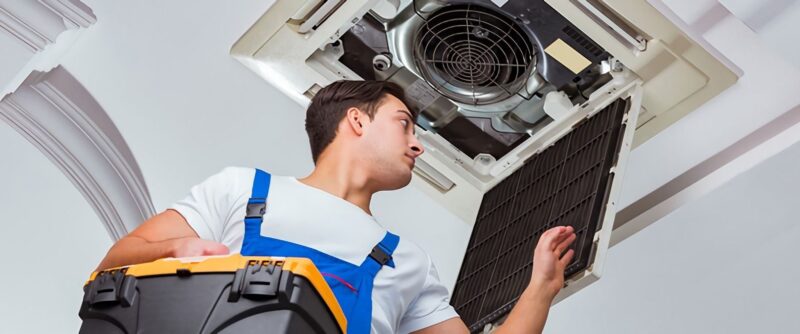Maintaining your HVAC system is essential to ensure proper heating, ventilation, and cooling in your home. Damages and breakdown can be frustrating and expensive.
This article provides indispensable tips to guide your journey to optimal HVAC maintenance. You don’t have to wait until breakdowns occur before seeking furnace service repair.
Armed with these insightful tips, you can efficiently manage your HVAC system, making it energy efficient, improving your indoor air quality and ultimately extending its lifespan.
Annual Pre-Season Check-ups

Your HVAC system needs annual pre-season check-ups to stay at peak performance. Don’t wait until summer or winter to service your cooling and heating systems.
Schedule check-ups in the spring for cooling systems and fall for heating systems. This will ensure optimal operation and help avoid unwanted costs and future problems.
A typical check-up should include thermostat settings, electrical connections, lubrication of all moving parts, and condensate drain inspection when cooling.
You can also perform some actions yourself such as inspecting, cleaning, or changing air filters once a month. A dirty filter can lead to early equipment failure.
Having a structured maintenance routine is crucial. Both yourself and a professional can contribute to the longevity of your cooling and heating systems.
Beyond pre-season check-ups, consistent maintenance is paramount. Keeping your system clean and lubricated can significantly enhance its lifespan and efficiency.
Smart Thermostat Installation
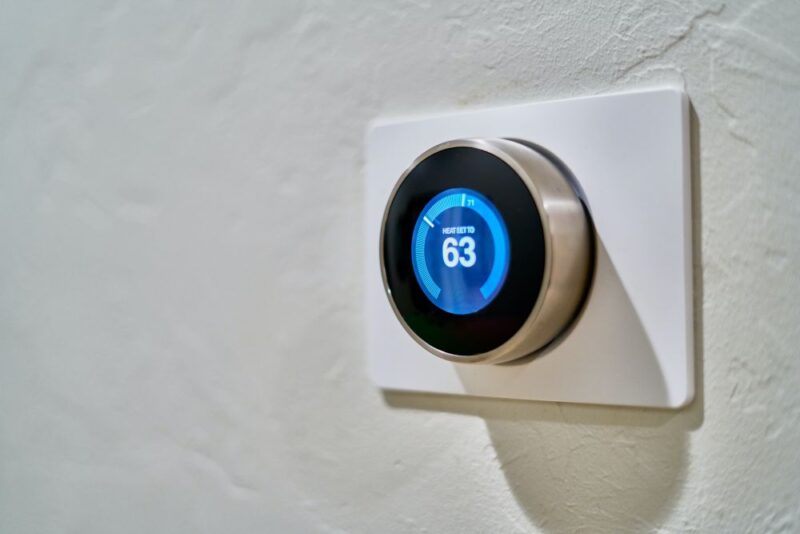
Installing a smart thermostat can be a game-changer for your household’s heating and cooling management. Before diving in, it’s essential to understand its unique features.
What Makes Smart Thermostats Different?
Unlike standard thermostats, Smart devices function alongside home automation systems. They can self adjust based on occupancy and preferences. Wondering how they work? We expand on this below.
Smart Programming Features
Smart thermostats ‘learn’ your household patterns. Instead of setting temperature schedules manually, they automatically adjust temperatures providing optimal comfort with minimal effort from your side.
Control Anytime, Anywhere
With the ability to remotely manage settings via web app or smartphone, you can ensure energy conservation even when you’re not at home.
Your Energy Consumption
Your smart thermostat tracks your home’s energy usage. Accessible via an app, this real-time data allows you to make informed adjustments and maximize savings.
Seal HVAC Ducts
The significance of sealing HVAC ducts is huge. This process enhances efficiency while reducing costs by preventing air leaks and bolstering safety measures.
Duct sealing provides an abundance of benefits. Not only does it improve airflow and energy efficiency, but it also creates a cozier home environment.
- Improved Airflow: The intent of conditioned air is to reach specific zones in your home. Sealed ducts prevent it from escaping.
- Energy Efficiency: Sealed ducts decrease energy loss, which results in lower utility expenses.
- Comfort: With sealed ducts, consistent temperatures are easily maintained throughout your home.
- Safety: By minimizing the chance for backdrafting, duct sealing can help avoid fire risks and potential carbon monoxide hazards.
If you observe uneven temperature distribution or notable increases in your energy bills, it may be an indication that your ducts need to be sealed.
You can enhance your HVAC system’s lifespan by regularly checking its status. This not only prevents unexpected malfunctions but also ensures optimal comfort at home.
Regular Filter Changes
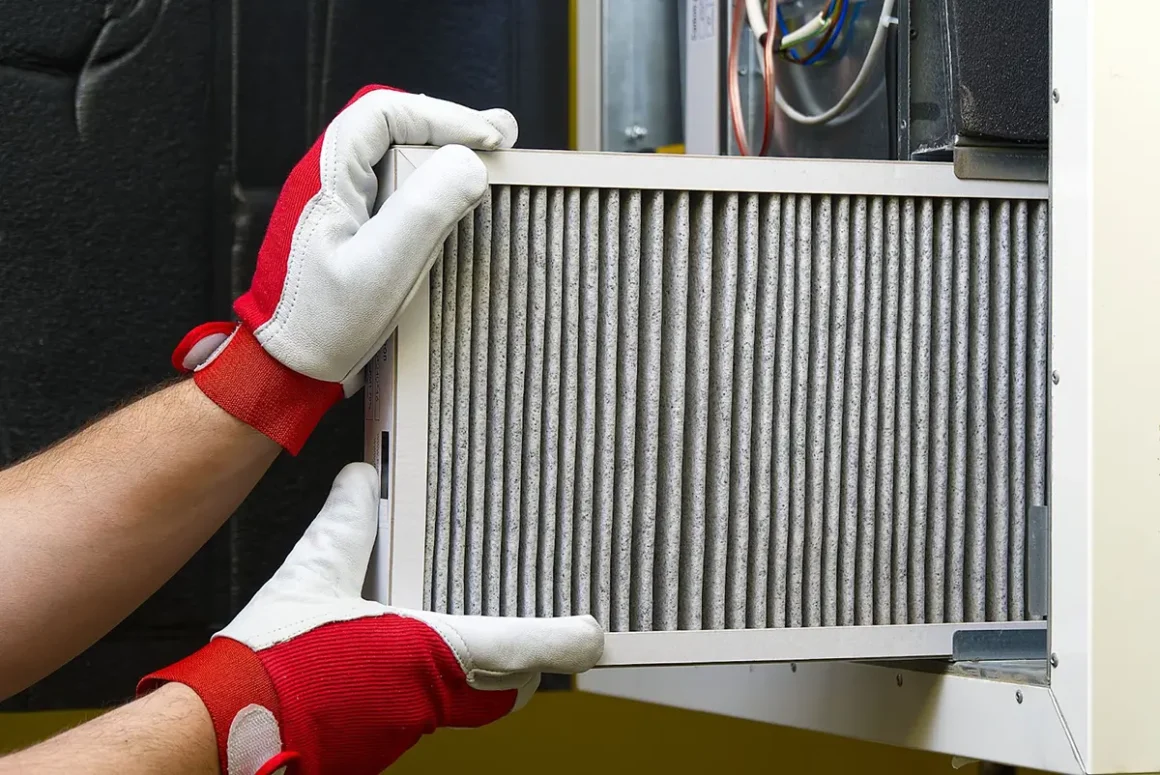
Ensuring regular changes of your HVAC unit’s air filters is crucial to its optimal function. These filters typically have a lifespan of three to twelve months.
Filter Lifespan Factors
The longevity of disposable air filters often depends on their model. Thicker filters normally enjoy a longer lifespan as they need less frequent replacements.
You’ll find that as filters grow older, their performance might degrade. So, maintaining a schedule for quick replacements is key to maintaining efficiency.
Economy vs Effectivity
An economical angle might suggest using a filter for its maximum life. However, this could compromise the overall performance and efficiency of your HVAC system.
By ensuring consistent filter changes, you safeguard your unit against unnecessary wear and tear. This simple step can extend the life of your HVAC system greatly.
Temperature Regulation
Proper temperature regulation is vital for optimal HVAC performance. As an HVAC professional, it’s necessary to adhere to certain outdoor design temperatures when working on an ENERGY STAR certified home.
These temperatures are crucial in calculating the room-by-room heating and cooling loads. They must not exceed the maximum cooling season temperature and minimum heating season temperature outlined in the reference guide for the state and county where the home is to be certified.
- Guidelines: Utilize a cooling season design temperature that does not exceed 99 F, and a heating season design temperature that is no lower than 28 F.
- Exceptions: If the design temperature surpasses the limit in the reference guide, an exception request may be made. This includes providing justification for the exception.
- Best Practices: For accurate load calculations, always use ACCA Manual J, 8th edition, 1% cooling season design temperature, and 99% heating season design temperature.
- Editions: Specific editions of reference guides list designated design temperature limits that should be used with appropriate National HVAC Design Reports.
The chosen state and county or territory and corresponding outdoor design temperatures will be documented in the HVAC Design Report. This report ensures your chosen temperatures are appropriate for effective HVAC performance.
Maintaining these standards will help ensure your clients achieve ENERGY STAR certification, thereby reaping benefits such as reduced energy usage and increased cost savings. Being aware of these guidelines can help facilitate a more smooth certification process.
Monitor Energy Bills
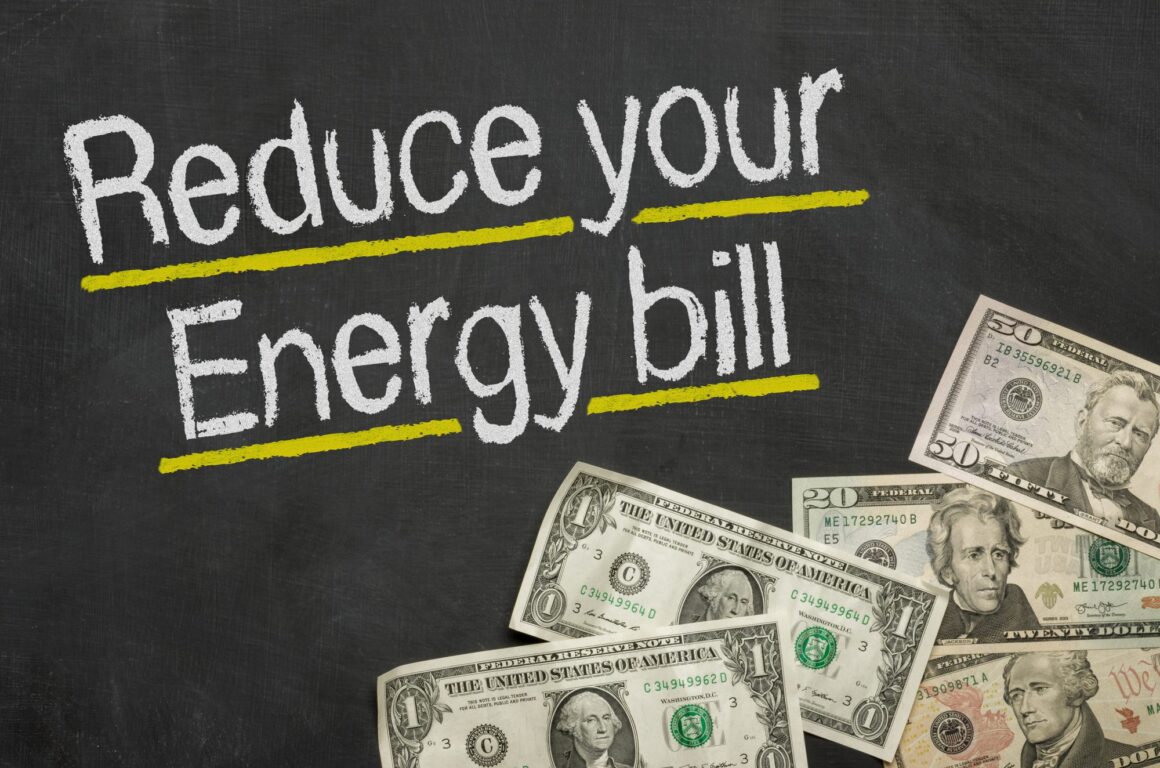
Monitoring energy bills provides insight into your HVAC system’s efficiency. A sudden increase in cost can indicate potential issues needing immediate attention.
Understanding Energy Consumption
Your energy bills display your consumption in kilowatt hours (kWh). The larger the number, the higher your HVAC system’s energy demand.
You should compare current consumption to previous months or years. A noticeable increase could be a sign that your HVAC system is working harder than usual.
Sector-Specific Tips
Different sectors have unique HVAC needs. Healthcare and education sectors, for instance, require consistent heating and cooling to ensure comfort and safety.
On the other hand, the industrial sector often demands more robust systems due to larger spaces and machinery-related heat. Accordingly, keep sector-specific considerations in mind for maintenance tips.
Evaluating Contract Terms
Keeping an eye on contract end dates can save you from overpaying. As you approach this date, shopping around for better energy deals may be beneficial.
They provide essential information necessary for understanding your energy requirements better.
Consider Total Replacement
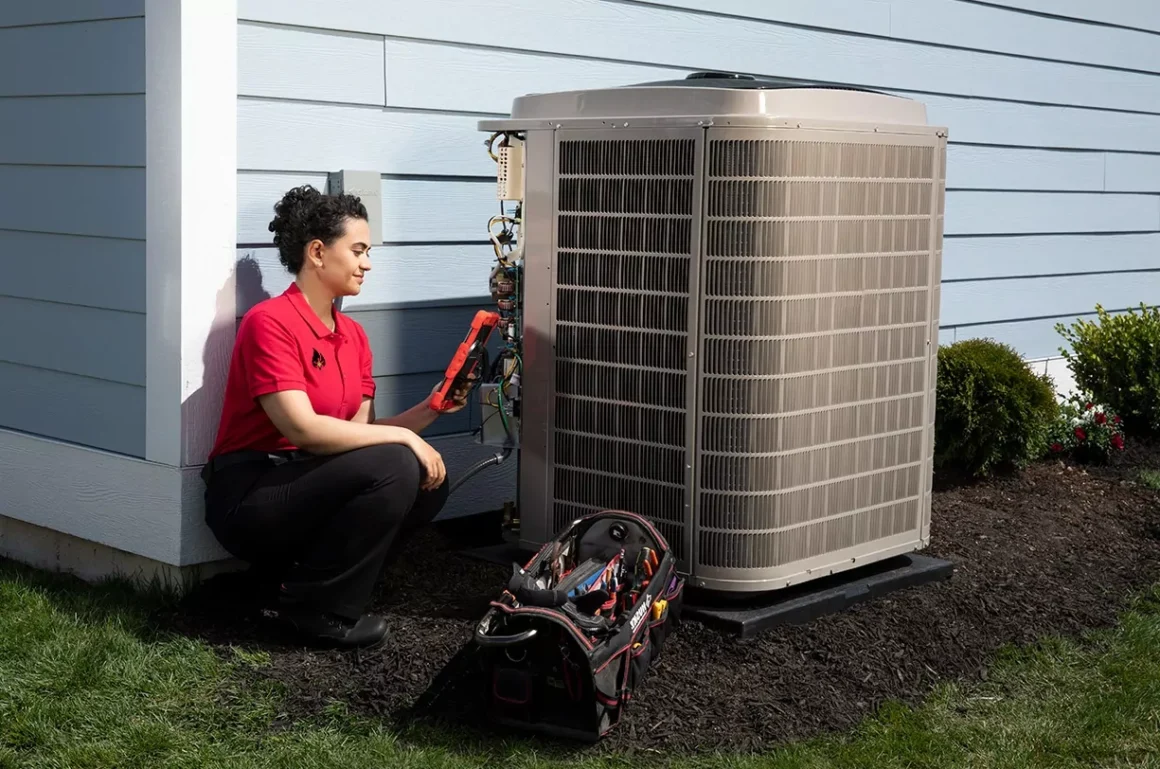
One shouldn’t look for a one-size-fits-all solution when it comes to HVAC systems. Your unique situation dictates your need for an individualized understanding.
Define Clear Goals
Make sure you set defined goals for your replacement strategy. This ensures every stakeholder involved knows what is expected of them.
Multidisciplinary Expertise
Maintaining an HVAC system may require expertise from various fields. So, try to seek expert assistance that can handle different requirements.
Transparency and Communication
Prioritize open dialogue with your service provider. Remember, transparency in communication will help in delivering the best possible results.
DIY HVAC Maintenance Tips
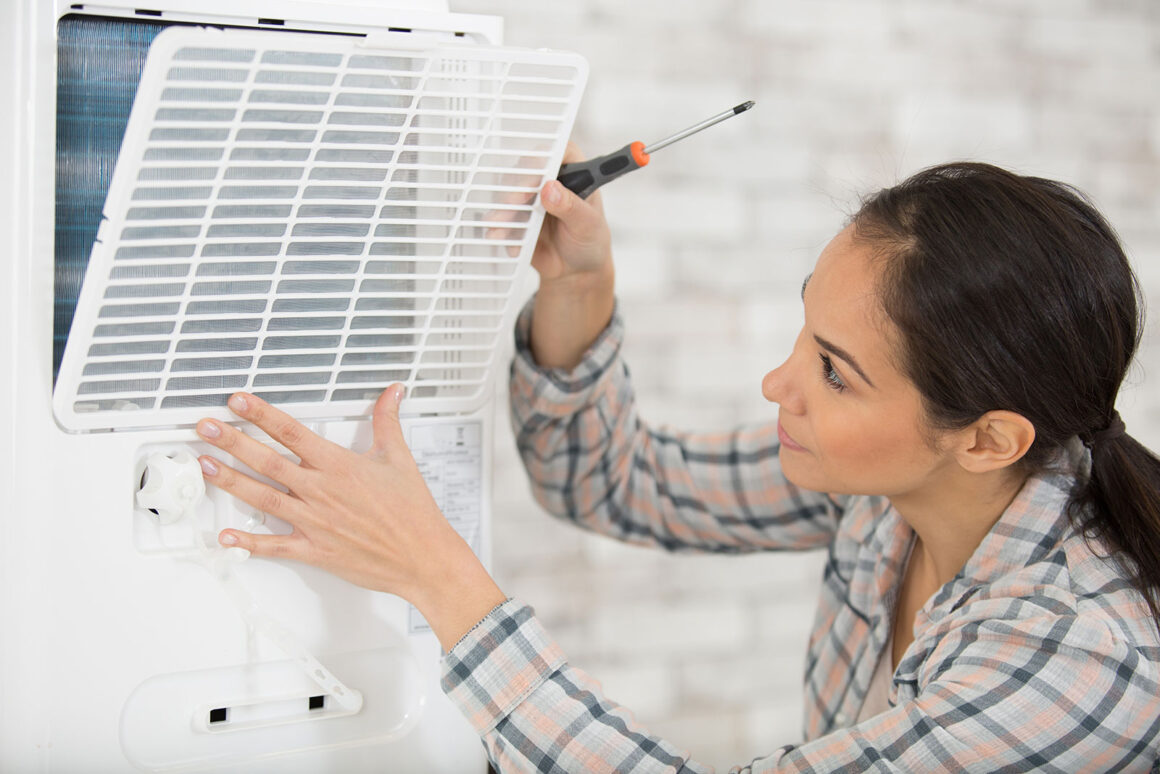
The maintenance of traditional central HVAC systems carries significant importance, particularly in apartments. This involves specific tasks performed twice yearly.
Cleaning condenser coils is a crucial component, especially as clean coils boost the system’s effectiveness and promote optimal performance.
Inspecting and clearing the condensate drain line prevents water overflow issues. Blocked drains can compromise efficiency, so regular monitoring is key.
- Check refrigerant pressures: Using a gauge, it’s essential to ensure proper charge levels for optimal unit operation.
- Inspect the furnace filter: A blocked or dirty filter can affect system efficiencies. Replace as required to maintain performance.
- Assess thermostat operation and battery life: An optimum-functioning thermostat ensures effective cooling/heating while guaranteeing prolonged battery life.
- Maintain good airflow around units: This contributes significantly to effective heating/cooling and overall unit longevity.
Precise readings of air temperature, both dry and wet bulb, and refrigerant line temperatures determine the charge of refrigerant your HVAC system needs.
YouTube channels such as AC Service Tech LLC and HVAC School offer a wealth of resources. They provide instructional videos and technical content for effective DIY maintenance.
Above all, ensuring your outdoor coils are cleaned annually greatly enhances your system’s performance and efficiency.
Boost Your Comfort
Keep your HVAC system in peak shape using these indispensable tips. Maintain it year-round, consider a smart thermostat, and monitor energy bills closely. Regular filter changes and sealing ducts will ensure efficiency. Remember, at times, replacing the entire system might be the best option.
